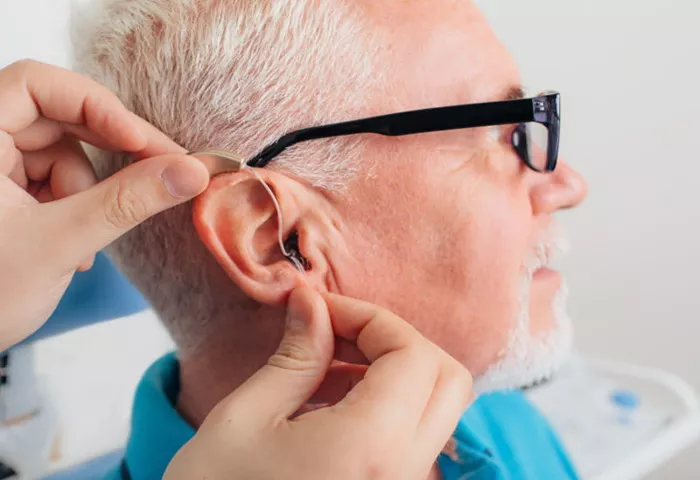A large, long-term study has revealed a significant association between hearing loss and an increased risk of developing heart failure, with psychological distress playing a pivotal role in this link. The research, published in Heart journal, sheds light on a largely unexplored area of cardiovascular health.
As both hearing loss and heart failure rates rise globally, particularly among the aging population, the study sought to investigate the connection between these two conditions. While previous research has indicated that hearing impairment is linked to cardiovascular disease, this study is one of the first to specifically examine how hearing loss might lead to heart failure, using objective measurements of hearing ability.
The study analyzed data from 164,431 participants in the UK Biobank, with an average age of 56. Among them, 4,369 participants wore hearing aids, and none had a history of heart failure at the start of the study. The researchers measured hearing ability through the Digit Triplets Test (DTT) and speech-reception threshold (SRT), categorizing participants based on their hearing performance: normal, insufficient, or poor.
Over a period of 11.5 years, 4,449 participants (almost 3%) developed heart failure. The study found that participants with insufficient and poor hearing had a 15% and 28% higher risk of developing heart failure, respectively, compared to those with normal hearing. Interestingly, participants using hearing aids also exhibited a 26% increased risk.
The research highlighted that the association between hearing loss and heart failure risk was especially pronounced in individuals without a history of coronary heart disease or stroke. Furthermore, participants with poorer hearing were more likely to experience social isolation, psychological distress, and neuroticism, which were found to play a significant role in the increased heart failure risk.
Social isolation, psychological distress, and neuroticism were shown to contribute 19.5% to the overall heightened risk of heart failure, although there was some overlap among these factors, with a combined mediating effect of just over 9%.
While the study’s observational nature prevents it from establishing causality, the researchers suggest plausible biological explanations for the findings. They hypothesize that hearing impairment could be an early indicator of systemic vascular issues, pointing to the cochlea’s rich blood supply and the high metabolic demand of the inner ear. This could make the inner ear particularly susceptible to vascular disorders, which may also contribute to heart failure.
The researchers also noted that while hearing aids can improve auditory function, they may not address the underlying vascular issues that could increase heart failure risk. Furthermore, the psychological impact of hearing loss, such as social isolation and distress, can exacerbate cardiovascular risk factors by triggering systemic inflammation and stress.
This study emphasizes the importance of including hearing health assessments in broader cardiovascular risk evaluations. Strengthening psychological support for individuals with hearing impairment may also be crucial in mitigating the risk of heart failure, the researchers concluded.
Related topics:
Mindfulness and CBT Offer Hope for Opioid-Treated Chronic Back Pain
Menopause and Its Impact on Heart Health
Air Pollution Linked to Cognitive Decline in Older Adults

